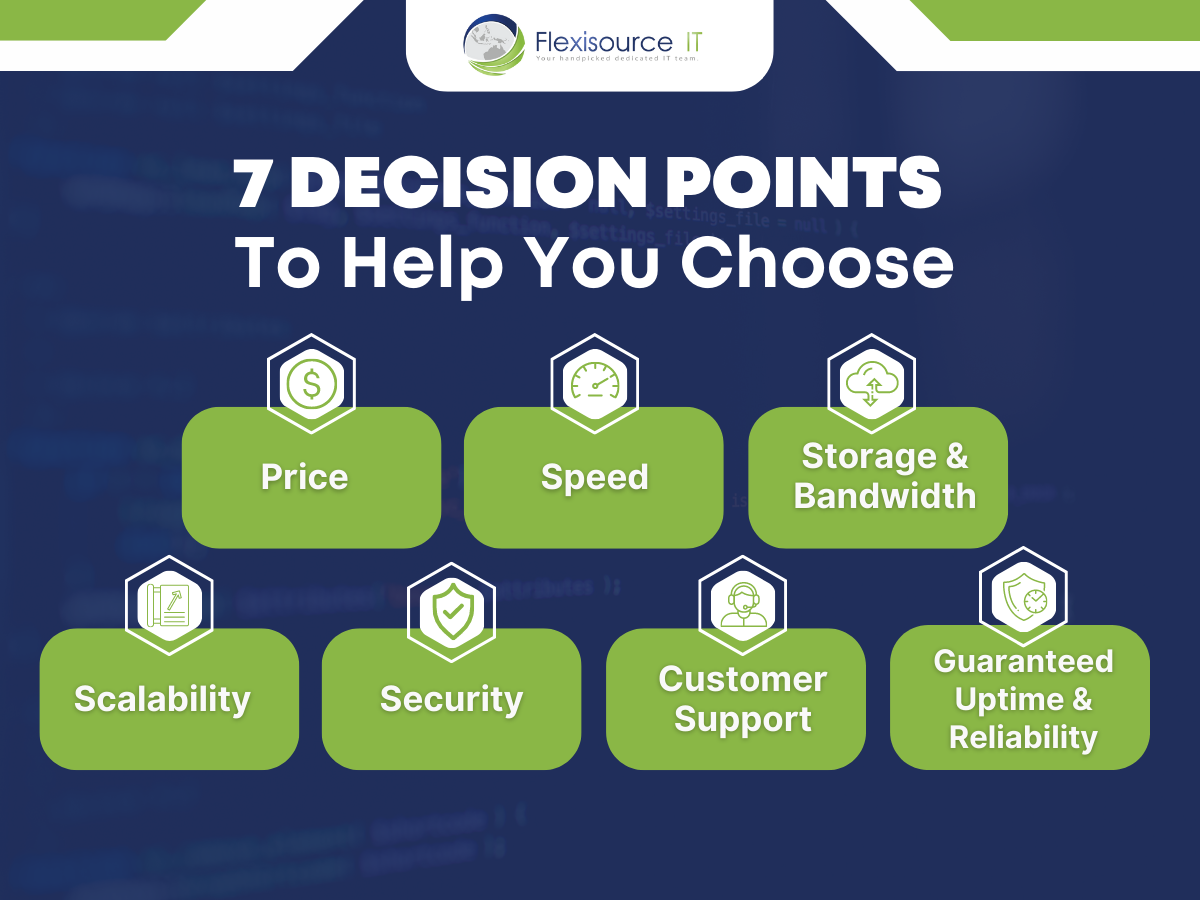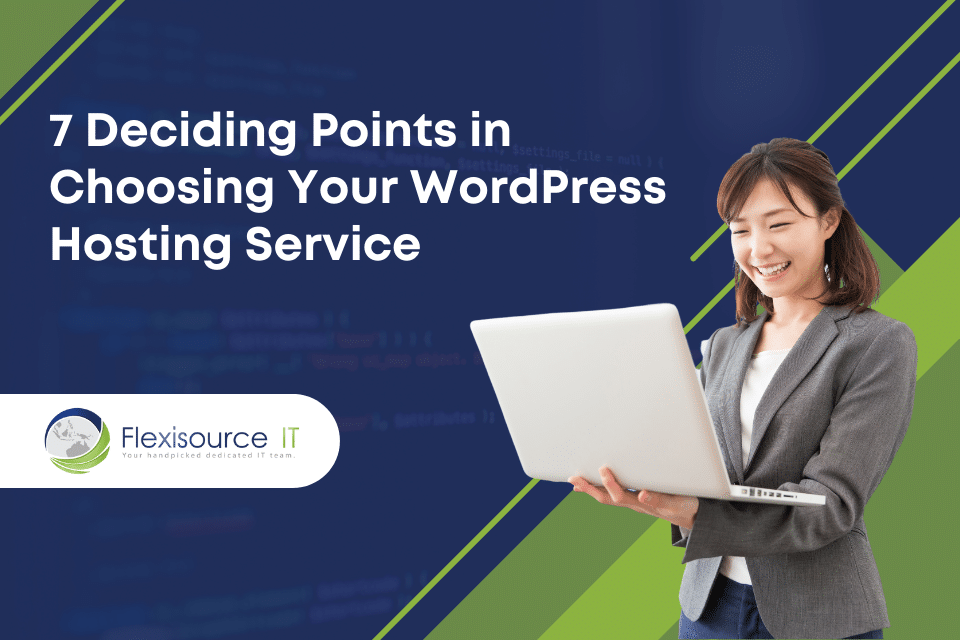WordPress makes it a lot easier to create any type of website you want. It gives you the freedom to design it however you want. But, now that you finished designing it, you are now faced with choosing the WordPress hosting service provider.
There are plenty of hosting service companies available on the internet. It is dizzying to choose! Plus, there are loads of pros and cons of web hosting platforms that you need to factor in carefully.
To help you decide, here are some key points you should always consider before you decide on a WordPress hosting service.
What Is A WordPress Host?
We all know WordPress. But, what exactly is a WordPress host?
A WordPress host, or a web host, is a company that is responsible for maintaining and managing the software and hardware where your WordPress website is located.
They take care of the technical stuff, both inside and out. That way, website owners like you do not have to worry about every little detail that goes into creating and maintaining your website.
In short, they offer hosting services to make your website visible on the internet.
How Does Choosing A Hosting Service Affect Your Business?
At this point, we all know that your website is your virtual storefront. How good it looks and performs, as well as what you offer, are the things your web visitors always consider.
All these depend on the quality of your WordPress host’s hosting service. If they perform well, your website can potentially have more web visitor traffic and convert them into paying customers. However, if they do not, then you are essentially losing money.
7 Decision Points To Help You Choose
The WordPress host you choose will make a difference for your website and your business. The question is: How to choose the right hosting provider for you?
To help you out, here are deciding points you should consider:
Point 1: Price
How much of your budget will you allocate for WordPress hosting service?
Every web host has different offers and packages for their services. It is important to identify how much you are willing to pay and stay on budget.
However, it is not wise to just choose the cheapest options available. Opting for the bare minimum is a recipe for trouble. You can potentially encounter more problems, resulting in losing website traffic and money.
Instead, carefully weigh the price of the hosting service packages offered by web hosts. These should cover the essentials and do not have any hidden or additional costs upon subscription.

Point 2: Speed
The performance of your website is crucial. If any web pages lag or load too slowly, it impacts the web visitors’ experience, which can result in a high bounce rate. This affects search engine optimisation (SEO) performance.
Many factors influence your website’s performance. One of these is the server speed—which falls under the responsibility of the hosting service company.
Here is how you can check the server’s performance:
- Time To First Byte (TTFB). It is how long it takes for a request to be sent by a browser and to receive the web page’s first byte. The ideal estate should be less than 200 milliseconds or near it.
- Component Loading Time. It measures the time for the server to load the cached content. It should not take longer than a few milliseconds to complete.
Point 3: Storage & Bandwidth
Storage is the space in the server where the files and data, such as images, videos, and other contents of your website, are stored. On average, a web page size is up to 2MB. However, keep in mind that your website’s data will get bigger as you add new content.
On the other hand, bandwidth is the limit of data transfer of a website within a specific period. There are two categories of bandwidth offered by any hosting service:
- Metered Bandwidth. A hosting service company sets a monthly limit on the traffic generated by a website. If it goes beyond the limit, there is a possibility that the site might crash and become inaccessible to web visitors.
- Opposite to this is Unmetered Bandwidth. There is no cap on the monthly usage and traffic. The limit is only up to the server capacity as covered by the subscription plan provided by a web host.
Luckily, most companies, including WordPress hosting agencies offer unmetered bandwidth already.
A rule of thumb when considering web hosts and plans is to choose the one that offers more than 50% more resources than what your website currently needs.
Point 4: Scalability
That said, it would be better if your potential WordPress hosting provider has scalable subscription plans.
A web host should be able to adapt to the growing needs of your website. However, the reality is only a few only offer this—and for a reasonable price.
Point 5: Security
Iron-clad security is a must. There should be no compromises or cut-arounds when it comes to the security of your website. Make sure they provide these security measures:
- Firewalls
- Virus scanning
- DDoS (Distributed Denial of Service) protection
- Brute force defence
- Server hardening
- SSL
- Domain Privacy
That said, it is important to check the scope of security that a web host will provide based on the plans or packages they offer. A rule of thumb to remember is that the more you pay, the less responsibility you have to shoulder for your website’s security.
Point 6: Customer Support
Aside from good security features, a hosting provider should also have rock-solid customer support.
Like it or not, the moment you pay a web host, they are now responsible for your website. The well-being of your website rests in their hands – which can be a critical factor to your business.
As such, check if your web host has superb customer support first. Reach out before you subscribe to a hosting plan. Ensure they pass all the things below:
- Are they easy to reach or contact?
- Do they respond fast?
- How long did it take for them to respond after you reached out?
- Are they helpful?
- Did their help resolve the issue?
- How did the customer representative treat you?
This is a good way to vet all your options. There should not be any compromises for this since you are essentially investing in the future of your website and business.
Point 7: Guaranteed Uptime & Reliability
Naturally, there will be server downtime when you update or maintain your website. But as the saying goes, “Time is money.” Any delays will cost you money or result in potential income loss.
To avoid this, you should look for a web host with guaranteed uptime. Find out how long they conduct web maintenance and a concrete time window for downtime and uptime.
In addition, you should also check the reliability of the web host’s server for peak traffic times and how often they experienced any errors or problems. Make sure also to check customer reviews to gauge how reliable they are.
Also, get the assurance that they only do maintenance during the times when web traffic is at its lowest. This might sound like it should be a given already, but it does not hurt to double-check and get verbal confirmation.
Choose The Best WordPress Hosting Service For Your Website’s Future Success
Every WordPress hosting service company offers features for their packages or hosting plans. There are so many web hosts and even more hosting options that it can feel dizzying.
A way to vet them all and decide the best one that suits you is to identify what to look for in web hosting. Make sure to list all the things you need for your website first and then compare that to what a web host offers.
You can unlock the full potential of your website with the right team! Just check out our website to learn more.







